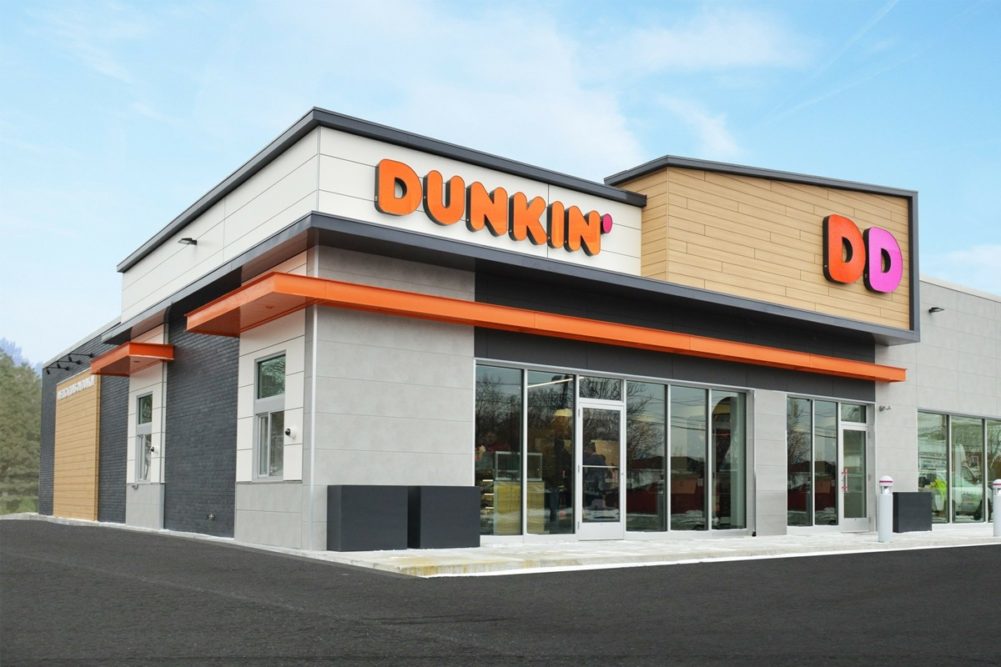CANTON, MASS. — About 800 Dunkin' US locations, including a previously announced 450 limited-menu Speedway locations, may close permanently in 2020 as part of a real estate portfolio rationalization, Dunkin Brands Group Inc. said July 30 while giving second-quarter financial results. The 800 locations would represent about 8% of the total Dunkin' US restaurant footprint and about 2% of 2019 Dunkin' US systemwide sales.
“For Dunkin' US, this means locations that have low average weekly sales, those that cannot support our beverage innovation or a next-generation remodel, or, frankly, there are locations where the traffic patterns have changed, and they can't be relocated or add a drive-thru,” said David L. Hoffman, chief executive officer of Dunkin’ Brands Group, in a July 30 earnings call.
The company still expects the average franchisee operating cash flow in Dunkin’ US to be about 80% of where Dunkin’ expected it to be at the beginning of the year, said Katherine D. Jaspon, chief financial officer of Dunkin’ Brands Group.
International franchisees and licensees are assessing real estate portfolios, too, she added.
“We anticipate that we could see an additional 350 restaurants close internationally by the end of 2020,” she said. “Similar to the closures in the US, these are low volume sales locations, which are unprofitable for our franchisees and licensees.”
Canton-based Dunkin’ Brands Group in the second quarter ended June 27 posted net income of $36.5 million, or 44c per share on the common stock, which was down 40% from $59.6 million, or 72c per share, in the previous year’s second quarter. Revenues fell 20% to $287.4 million from $359.3 million. The share price for Dunkin’ Brands on the Nasdaq closed at $68.65 per share on July 30, which was down 4.2% from a close of $71.68 per share on July 29.
Dunkin’ Brands at the end of the second quarter had $291 million of unrestricted cash held in the United States, which excludes cash reserved for gift cards and advertising funds, and $117 million of available borrowings under its $150 million variable funding notes. Dunkin’ Brands in the first quarter borrowed about $116 million under its variable funding notes and then repaid all the borrowings in the second quarter.
Same-store sales declined for Dunkin’ and Baskin-Robbins both domestically and internationally as an increase in average ticket price partially offset declines in traffic driven by COVID-19.
Same-store sales fell 19% for Dunkin’ US in the second quarter. They sequentially improved with a 32% drop in April, a 17% drop in May and a 9% drop in June. Segment profit in the quarter fell 24% to $96.2 million while total revenues dropped 20% to $134.1 million. In giving an update for the third quarter, Dunkin’ Brands said same-store sales declines through July 25 were low-single digits for Dunkin’ US stores that were open, which included about 96% of total Dunkin’ US stores.
Dunkin’ International reported same-store sales declined 35% while segment profit was $1.8 million, down 66%, and total revenues were $2.8 million, down 63%.
Baskin-Robbins US in the quarter reported same-store sales declined 6% while segment profit was $9.3 million, down 8%, and total revenues were $12.4 million, down 13%. Delivery sales at Baskin-Robbins US were up more than 250% when compared to the previous year’s second quarter, Hoffman said. Baskin-Robbins International same-store sales declined 5% while segment profit was $9.9 million, down 18%, and net revenues were $26.6 million, down 18%.
Companywide for the six months ended June 27, Dunkin’ Brands posted net income of $88.6 million, or $1.07 per share on the common stock, which was down 21% from $111.9 million, or $1.35 per share, in the same time of the previous year. Six-month revenues of $610.5 million were down 10% from $678.4 million.


